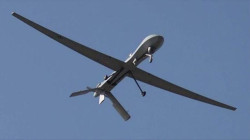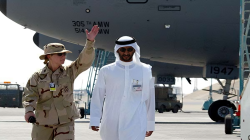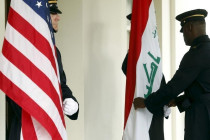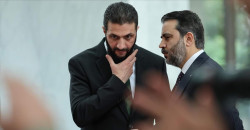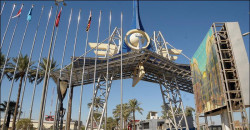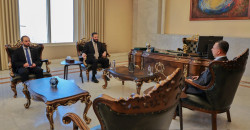Regional thaw spurs optimism in Iraq, but domestic challenges persist
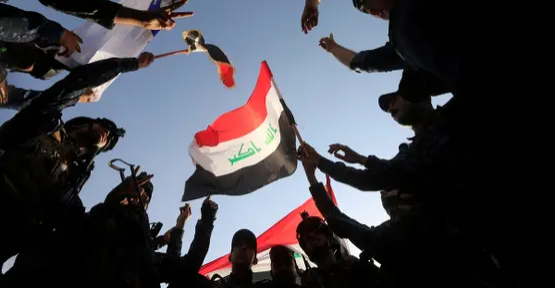
Shafaq News/ A wave of regional developments is casting a hopeful glow over Iraq, fueling expectations of newfound stability as Middle East alliances thaw and US-Iran negotiations help dial down the threat of conflict—if only for now. Analysts say these developments could positively impact the Arab League summit scheduled for May 17 in Baghdad.
Strengthening Ties with Syria
Regional momentum is redrawing diplomatic lines, and Iraq is stepping into the spotlight. Observers say shifting power dynamics in Syria and Lebanon are opening new doors, with Iran’s influence slowly waning and Iraq seizing the chance to rebalance its ties with both Washington and Tehran while edging back into the Arab fold.
Syrian political analyst Yaman Shawaf told Shafaq News that improving conditions in Syria and a long, shared border with Iraq set the stage for deeper cooperation. Electricity grids, agricultural trade, and transport routes could soon link the two nations in a web of mutual interest.
At the same time, Iraq is carving out a new role as a regional trade corridor, linking its ports to the Gulf, Syria, Turkiye, and Europe—an ambitious push that could transform it into an emerging economic powerhouse.
Jordanian analyst Hazem Ayyad noted that Syria has become a keystone in rebuilding Arab ties. Countries including Jordan, Iraq, Lebanon, and Turkiye have pledged to coordinate on security and counterterrorism, launching a joint center in Damascus to anchor that cooperation.
Backing these diplomatic shifts, Iraqi Prime Minister Mohammed Shia al-Sudani extended a formal invitation to Syrian President Ahmed al-Sharaa for next month’s Arab League summit in Baghdad. The move aligns with Jordanian Foreign Minister Ayman Safadi’s visit to Damascus, aimed at deepening political, economic, and security coordination between the two neighbors.
Saudi-Iranian Dialogue a Potential Turning Point
Ayyad pointed to high-stakes diplomacy unfolding in Tehran, where Saudi Defense Minister Khalid bin Salman’s visit marked a bold move to cement the Beijing-brokered thaw between Riyadh and Tehran.
Momentum continued with a call between Jordan’s King Abdullah II and Lebanese President Joseph Aoun, zeroing in on political and security coordination—another signal that the region’s fractured ties are healing.
These steps, Ayyad noted, are helping to shape a more optimistic atmosphere ahead of the Baghdad summit, reinforced by US-Iran talks and the potential breakthrough of a Gaza ceasefire. As tensions cool, Arab states may find new room to dial back internal disputes.
Political analyst Saif al-Saadi echoed the sentiment, stressing that stronger security alliances with regional neighbors are vital in the fight against terrorism—especially along Iraq’s 618-kilometer border with Syria. He praised the invitation extended to Syrian President al-Sharaa as a strategic move to revive Iraq’s influence and reclaim its role on the regional stage.
US-Iran Talks: Key to Iraqi Stability
Al-Saadi emphasized that a breakthrough in US-Iran talks could unlock “significant benefits for Iraq.”
Iraqi MP and Foreign Relations Committee member Mukhtar al-Mousawi explained to Shafaq News that a successful agreement would ease mounting pressure on Baghdad—particularly over accusations of dollar transfers to Iran and Tehran’s sway over Iraqi militias.
Stronger US-Iran ties, he added, could also pave the way for deeper regional economic integration, especially with Iraq sharing a sprawling 1,400-kilometer border with Iran.
Domestic Discontent Clouds Optimism
Despite the wave of regional optimism, Iraqi politicians gathered at the ninth Sulaimani Forum voiced deep concerns over the country’s internal direction.
Speakers warned that political power remains firmly in the grip of dominant parties—a legacy rooted in the post-2003 landscape following Saddam Hussein’s fall. They pointed to crumbling public services, rising illiteracy, soaring unemployment, and entrenched corruption as stark indicators of democratic decay.
Political figure Laith Kibbeh painted a grim picture, accusing powerful blocs of monopolizing state resources and steering the country toward instability. He cited alarming demographic trends—one million births each year and half a million graduates entering a stagnant job market—as pressure points that Iraq’s fragile economy is ill-prepared to handle.
According to Kibbeh, none of the current political parties have the capacity to tackle Iraq’s escalating crises. He declared the political system “deadlocked” and urged the country’s elite to face what he described as a widening disconnect between the state, the government, and the ruling class.
To rebuild, Kibbeh called for a fresh national platform that unites Iraq’s fractured political forces. He also championed stronger ties with the semi-autonomous Kurdistan Region, proposing a shift toward nationwide decentralization as a path to creating a modern Iraqi state.
Elections as a Path Forward?
Jamal al-Dhari, Secretary-General of the National Project Party, took aim at Iraq’s political establishment, slamming the widening gap between the ruling class and public expectations.
He stressed that democracy goes far beyond casting ballots—it demands peaceful power transitions, real accountability, and open political competition.
Al-Dari argued that many parties operate unchecked, sidestepping campaign finance laws without facing consequences. “If this political system proves futile,” he warned, “then Iraqis must be empowered to reform it.”
Echoing the need for change, Ali Hama Saleh of the National Stance Movement admitted the challenges of genuine political competition but stood firm in his belief that elections remain the only path forward. “We’re left with no choice but to pursue gradual reform through parliament,” he said.
For now, the key question remains: Can Iraq capitalize on the opportunities ahead, or will internal dysfunction hold it back?
